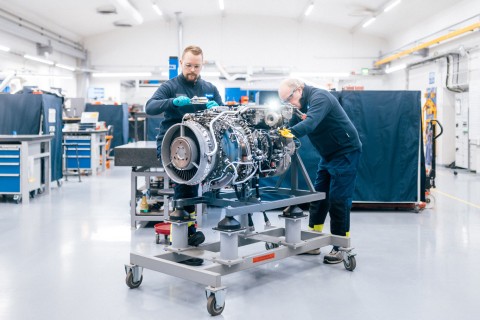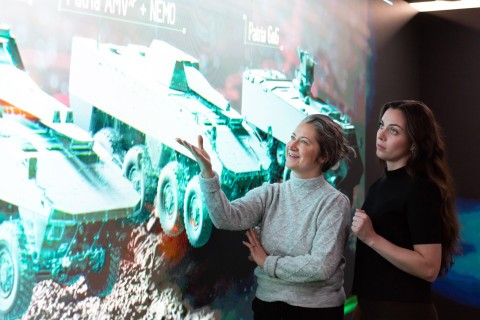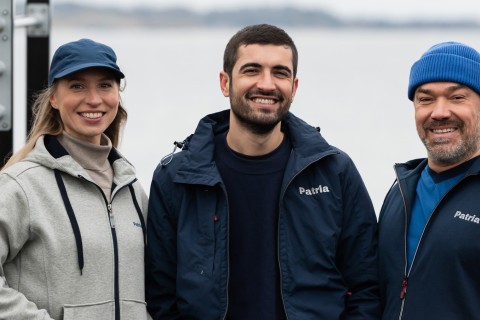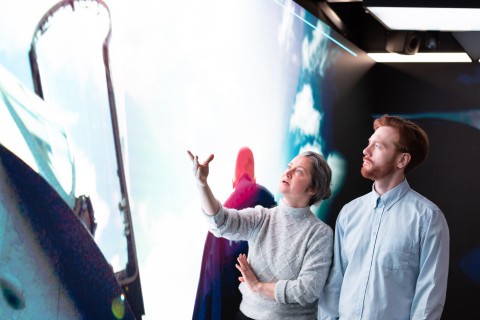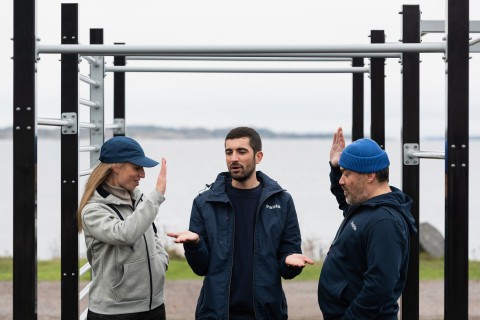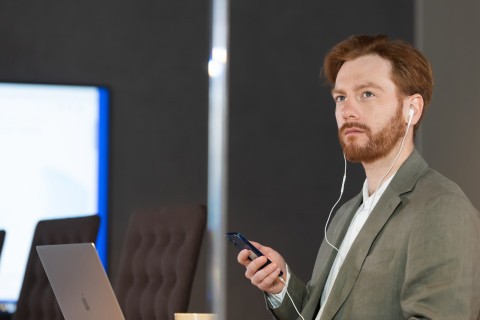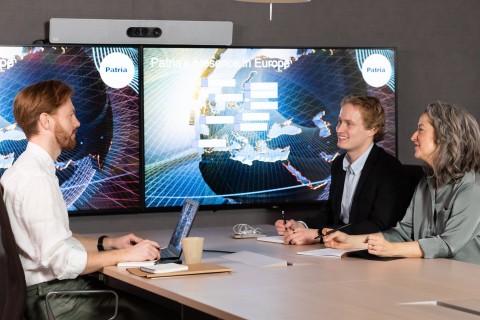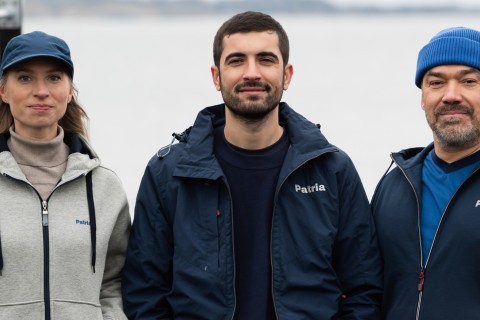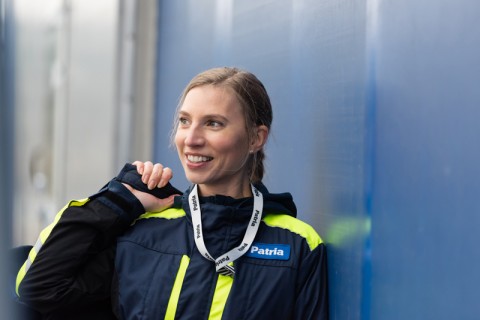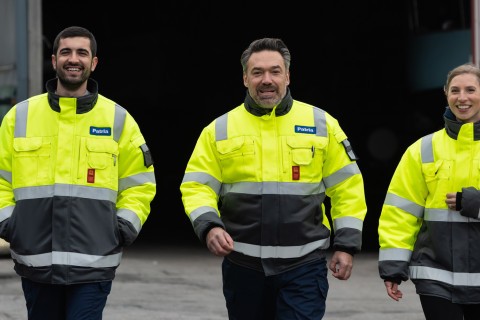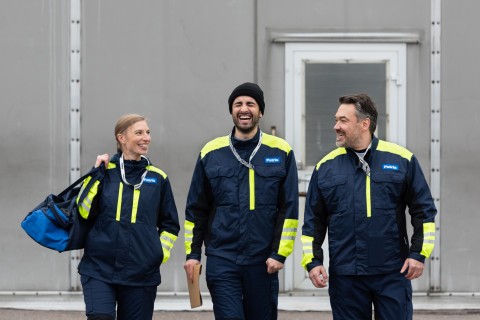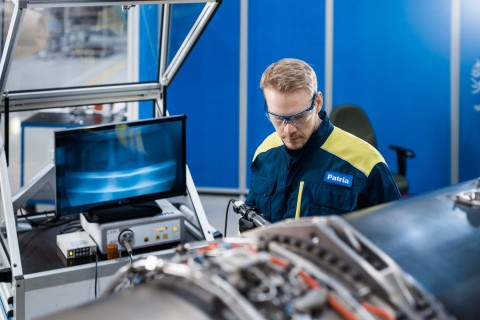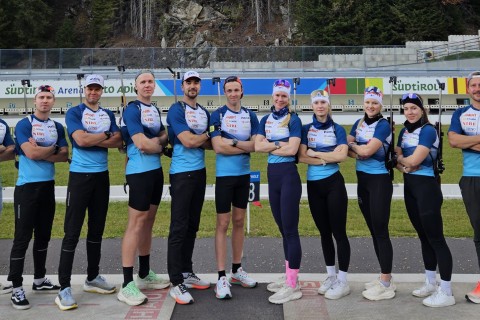
Mobile Work Creates New Work Routines
4.7.2019
Remote work is constantly more popular at Patria. Some employees work on the move and some prefer to work from home. New forms of work are often more effective and more appealing.
Patria’s HR Director Leena Olkkonen
Patria’s HR Director Leena Olkkonen and ISP BU Vice President, Business development and strategy Harri Lähti get their cups of coffee from a machine and sit down to discuss new trends in work routines. This is very much a current issue, as Patria’s employees are working remotely in increasing numbers. "We are a growing business on an international market, and our workforce is clearly more mobile than before. These days one needs to be able to work effectively no matter when or where,” Olkkonen says. “A lot of time would be lost and normal days at the office would become unbearably long if routine tasks like checking one’s emails were done only at the work place. Luckily it is now possible to establish a secure data connection for instance from an airport,” Lähti expands.
ISP BU Vice President, Business development and strategy Harri Lähti,
Lähti’s own work involves a lot of travel, because clients of the ISP Business Unit are located outside Finland e.g. in Norway, Sweden, Estonia and Belgium. Lähti spends a lot of time commuting between Patria’s different locations and communicating with Patria’s international clients.
Remote Work is Team Work
Patria has developed a policy for remote work, and as a result its business is now more efficient. The detailed routines of remote work are always designed in teams. “In some teams this is easier than in others. That depends on the tasks at hand. Remote work is suitable especially for experts, who make up around a half of Patria’s workforce,” Olkkonen says. Data security sets some limitations on remote work. “Data security is a priority in our line of work, because our clients include armed forces and government officials. Due to this, some of Patria’s routine tasks are possible to perform only at Patria’s own, secure locations.” Remote work is still a novelty also for many other companies. Its popularity is on the rise, because employers as well as employees stand to gain from new forms of work if these are designed well. “Remote working conditions are best designed together. Managers and employees need to agree on the best policies. It is all based on mutual trust. This way of working requires that responsibilities are shared. Both managers and employees need to see this,” Olkkonen says.
Managerial Attitude is Crucial
The attitude of managers towards remote work is crucial. Managerial decisions are the crucial thing, Olkkonen reflects. A manager must be active and approach employees to check how they are doing. fare. The manager must also make sure that workloads remain manageable and employees do not get over-stressed and exhausted. “Managers play a key role in finding the optimal routines. Also managers themselves should try working remotely.” Olkkonen and Lähti know from experience that days spent in remote work are often the most effective, because they allow one to focus fully on one’s own tasks. But both also value the direct social interactions of the traditional work place. Even highly mobile teams should at times meet up in person. “Team members can agree for instance to spend certain weekdays at the office. This way they can exchange ideas routinely,” Olkkonen says. “Email contacts alone will not suffice. One often hears that the best ideas are come by in unofficial coffee table chats,” Lähti notes.
Flexibility Alleviates Stress
Leena Olkkonen finds that remote work is increasingly popular also because more individuals require more flexible routines. “These days work places more demands on us all. It is important to adjust one’s working habits to one’s family and other interests. This alleviates stress.” Both managers and employees must make sure that remote work does not demand too much of the individual. Everyone needs leisure. Harri Lähti suggests compiling a list of tasks for each day spent in remote work. Once the last item has been taken care of, it is time to shut down one’s laptop and to look to the other things in life. “This is a good tip, because longer working days leave one with too little time to recover. Lähti adds that remote work is only one way to enhance flexibility. He finds that flexible working hours are useful for reaching a balance between one’s work and leisure hours. For example, one may use a lunch hour to work out at the gym and then make up for the lost hour by working longer in the afternoon.” At Patria, flexibility is valued on several stages of work career, Olkkonen says. For example, a study leave or job alternation leave is offered to experienced employeesEmployees are also asked routinely about their level of satisfaction with Patria, she continues. “Employee representatives provide feedback, providing us with ideas how the ways of working can be developed.”
What did you like about the article?
Thank you for your opinion! You can share the article on social media using the buttons below:

